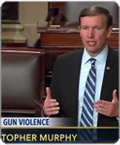
Gun control legislations continue to come out of the woodwork as more and more are passed into law throughout the United States in the hopes of preventing further gun related violence. Majority of these gun control measures are aimed at making it more difficult for terrorist and those disqualified by law to purchase firearms.
From Sacramento to Des Moines, several lawmakers along with different interest groups and activists have been busy churning out different solutions to counter the ongoing gun-related crimes that have been happening for the past few years. These new measures however have been met with stern opposition from lobbyist from the other side of the battlefield.
Gun violence prevention groups however have completely taken the battle to an entirely new level following the numerous shooting incidents that have occurred in the past few months. It was reported that since the December 2012 massacre of 20 children and 6 school staff members in Sandy Hook Elementary in Newtown, there has been about 138 new gun laws that have since been enacted. These laws have further tightened the restrictions on possession and the purchase of firearms and are all now active in 42 different states.
Now, several other similar legislations are on their way to become enacted, but a good number of them are still not able to move on from the Senate. Republicans continue to block these amendments claiming that they threaten the second amendment rights of the American people.
Some examples of these proposals includes an amendment by Sen. Chris Murphy, D-Conn which would extend background checks to all gun sales. Sen. Charles Grassley, R-Iowa’s proposal aims to boost funding for the FBI’s National Instant Criminal Background Check System. Sen. Dianne Feinstein, D-Calif, on the other hand has proposed that the government outright declines the sale of firearms to citizens that are suspected of being terrorist or are linked to terrorist networks.
It still remains to be seen if any of these will ever be enacted into law for their respective states, but groups such as the Everytown for Gun Safety, a group which is backed by New York City Mayor Michael Bloomberg, are making it more likely that they will be.

